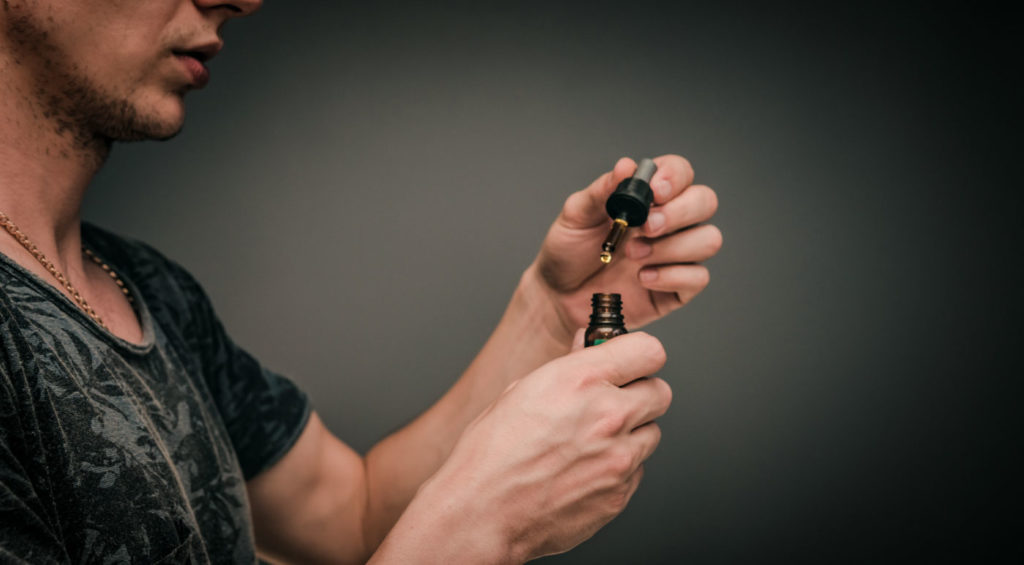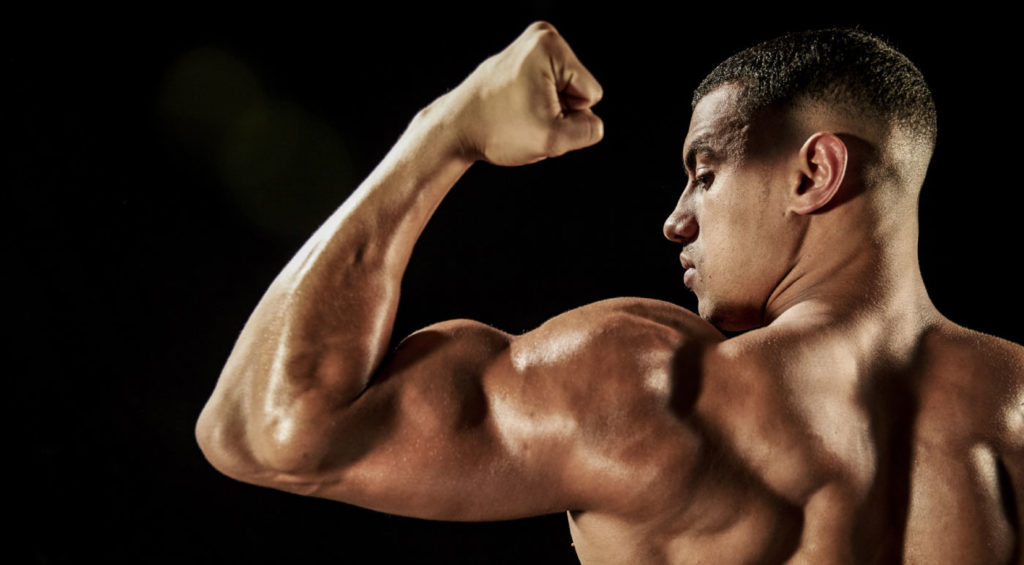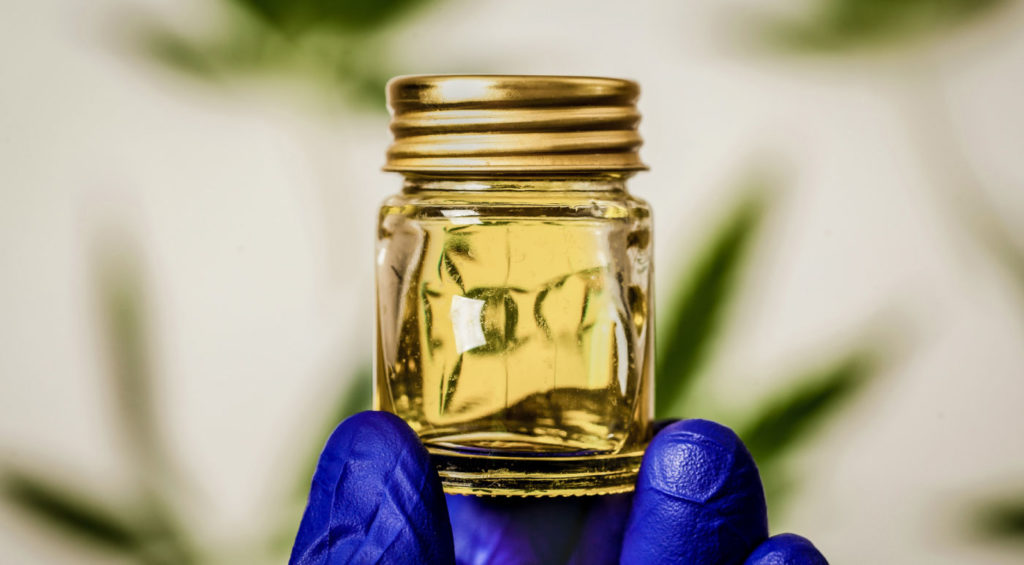
Since CBD has become legal in the United States, researchers have been diving into the health benefits of this cannabinoid. The more we learn about CBD, the more we realize what this hemp plant extract is capable of. People are getting increasingly excited about using CBD for chronic health issues ranging from anxiety, to seizures, to inflammatory conditions, to chronic pain, with excellent results. But can CBD also be used for testosterone?
One area of particular interest to men is CBD and testosterone. Testosterone plays a role in sex drive, sexual function, body composition, and overall well-being. Men have been curious if the phytocannabinoid, CBD, could help them boost testosterone levels, or if CBD could potentially hinder their body’s testosterone production.
To answer this question, we will need to understand how the body regulates testosterone, what factors and health conditions can cause low testosterone, and how CBD may influence these processes.
Table of Contents
- What Causes Low Testosterone?
- What Are the Symptoms of Low Testosterone?
- How Do I Know if I Have Low Testosterone?
- What Does the Research Say on CBD and Testosterone?
- Is it True That Marijuana Can Affect Testosterone Levels?
- Final Thoughts on CBD and Testosterone
What Causes Low Testosterone?

In males, testosterone is produced by the Leydig cells of the testes. First, a small gland in the brain, the hypothalamus releases a hormone, gonadotropin-releasing hormone (GnRH). Next, GnRH tells another small gland in the brain–the pituitary–to release two hormones, follicle-stimulating hormone (FSH) and luteinizing hormone (LH).
These two hormones, FSH and LH, then travel to the testes where LH stimulates the Leydig cells to produce testosterone, and FSH stimulates sperm production.
There are several causes of low testosterone. As males age, they naturally produce less testosterone. After the age of 40, testosterone production decreases by 1% each year.
Also, the body can convert testosterone to estrogen through the aromatase enzyme. This enzyme is produced by fat cells, therefore being overweight can cause a man to turn a more substantial proportion of his testosterone into estrogen, thereby decreasing his total testosterone levels.
Inflammation can also play a role in low testosterone. Inflammation can increase the enzyme aromatase, which then lowers testosterone by increasing its conversion to estrogen. Furthermore, low testosterone can increase inflammation, creating a vicious cycle.
High-stress levels may also decrease testosterone production. Studies show that high cortisol levels, which are triggered by high levels of stress, leads to a decrease in the production of testosterone.
Other conditions that decrease testosterone production include:
- Previous steroid use
- Injury to the testicles
- Chemotherapy
- Head injury
- Medications such as opioids and corticosteroids
- Alcohol or drug abuse
- Liver or kidney disease
- Chronic disease
- Diabetes
- Hypothyroidism
- High prolactin
What Are the Symptoms of Low Testosterone?
Low testosterone can affect each man differently. The symptoms a man experiences also depends on what stage of life he is in. For example, low testosterone during puberty can delay secondary sexual characteristic development, such as pubic hair, penile growth, and voice changes.
If a man experiences low testosterone after puberty, during his adult life, common symptoms may include:
- Decreased sex drive and function
- Depression and irritability
- Issues concentrating and remembering
- Fatigue
- Low muscle mass and bone mass
- Increased fat mass
- Infertility
- Anemia
Each individual is different and may experience some or all of these symptoms. Also, many of these symptoms are shared with other conditions, such as hypothyroidism, depression, and chronic stress. Therefore, low testosterone could be contributing to these symptoms; however, there may be more factors at play than merely a testosterone imbalance.
How Do I Know if I Have Low Testosterone?

The best way to know if you have low testosterone is by running lab tests. Your doctor can order a panel of hormone labs which look not only at testosterone, but other hormones such as estrogen, prolactin, thyroid, and sex-hormone binding globulin, which can affect hormone balance.
You doctor may also want to look into other causes of testosterone imbalance such as sources of inflammation, kidney and liver function, blood sugar, and your body mass index.
Once your doctor assesses all of these factors, you and your doctor will have a better understanding of whether you have low testosterone and, if so, why.
What Does the Research Say on CBD and Testosterone?
There are numerous causes of low testosterone production. Therefore there is no one-size-fits-all approach. CBD may influence testosterone production through its effect on the endocannabinoid system.
The endocannabinoid system is made up of cannabinoid receptors, CB1 and CB2, scattered through the brain and body. When stimulated, these receptors influence behavior, inflammation, pain perception, and more.
There are CB1 receptors in male reproductive organs, including the testes where testosterone is made, as well as in the hypothalamus of the brain, where testosterone production is controlled. Since CBD stimulates CB1 receptors, researchers have begun to look into how CBD may affect testosterone production and regulation.
These findings suggest that CBD may influence testosterone production and regulation. However, it is not clear if it increases or decreases testosterone. More research is needed in this area.
Animal studies using rats found that CBD influences the breakdown of testosterone in the liver. If testosterone is broken down at a slower rate, it means there that circulating testosterone levels will become higher.
What we do know is CBD can influence some of the causes of low testosterone: stress, high cortisol levels, and inflammation.
Research shows that CBD is effective at reducing inflammatory cytokines by stimulating the CB2 receptors of the endocannabinoid system. As previously mentioned, inflammation can lead to lower testosterone levels.
Also, there is strong evidence to support that CBD helps to lower anxiety and stress levels. Stress and anxiety are triggers for cortisol release, which is another cause of low testosterone.
In summary, there is potential for CBD to help increase natural testosterone production; however, we still require more research.
Is it True That Marijuana Can Affect Testosterone Levels?

You may have heard that using marijuana can impair fertility and testosterone levels in men. According to the research, there is some truth to this. You may be wondering if this applies to CBD products as both CBD and marijuana are from the same plant family, Cannabis Sativa.
Studies that looked at marijuana use and its impact on male fertility have found there’s a negative impact on male reproductive health. What they reported is that the cannabinoids found in marijuana compete with the human body’s natural cannabinoids. However, unlike CBD oil, marijuana contains high levels of 9-tetrahydrocannabinol or THC. THC is the psychoactive component of marijuana.
These researchers also found that it is THC, not CBD, which has a negative impact on male fertility.
It is important to note that CBD oil is derived from the industrial hemp plant, not the marijuana plant. The industrial hemp plant contains only trace amounts of THC, to begin with, and CBD products are further processed to remove THC. Since CBD products in the United States must contain less than 0.3% THC, these research findings do not likely apply to CBD oil.
Animal studies have also found that THC reduces testosterone production in the testes. Also, other animal studies found that both THC and CBD can increase, or decrease testosterone production, depending on the dose. Keep in mind, these studies were performed on rats, so human studies are necessary to confirm these findings.
While it is true that marijuana appears to impact testosterone levels negatively, CBD products are entirely different in composition. We, therefore, cannot assume that CBD will have the same effects on male hormone production as marijuana.
Final Thoughts on CBD and Testosterone

The CBD industry is exploding, and people are excited by the many uses of CBD with very few side effects. Men are questioning whether or not CBD could influence their testosterone production, either positively or negatively.
What we do know is likely marijuana harms testosterone production. This is due to the THC content, which CBD products do not contain.
CBD may be useful in boosting testosterone through its anti-inflammatory, and stress reducing effects, which are two reasons men may experience low testosterone. Also, CBD may slow the rate of testosterone breakdown in the liver.
To date, there has not been enough research to know the effects of CBD on testosterone levels with certainty. What we need is more studies and tests regarding humans, to understand how CBD truly affects testosterone.
